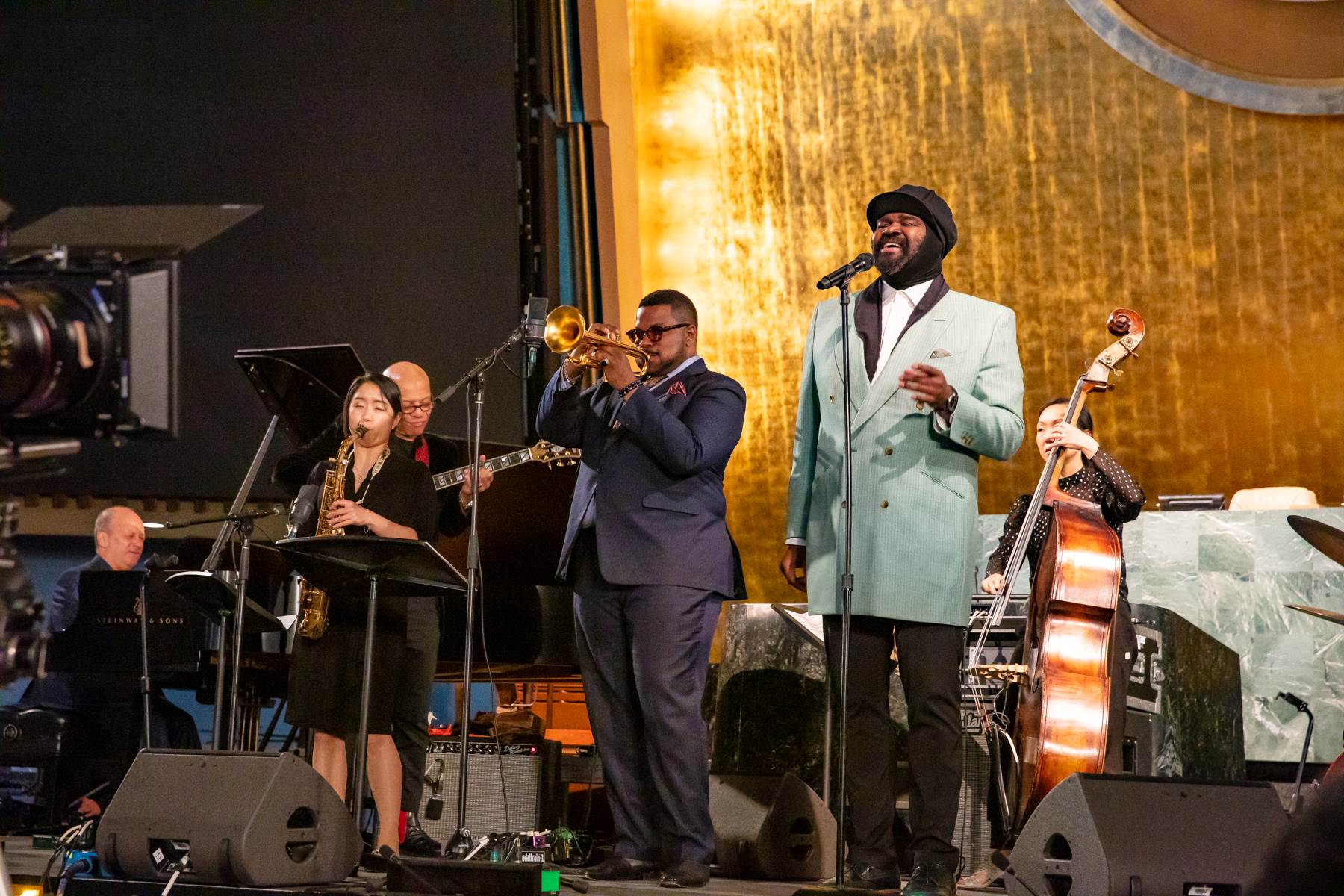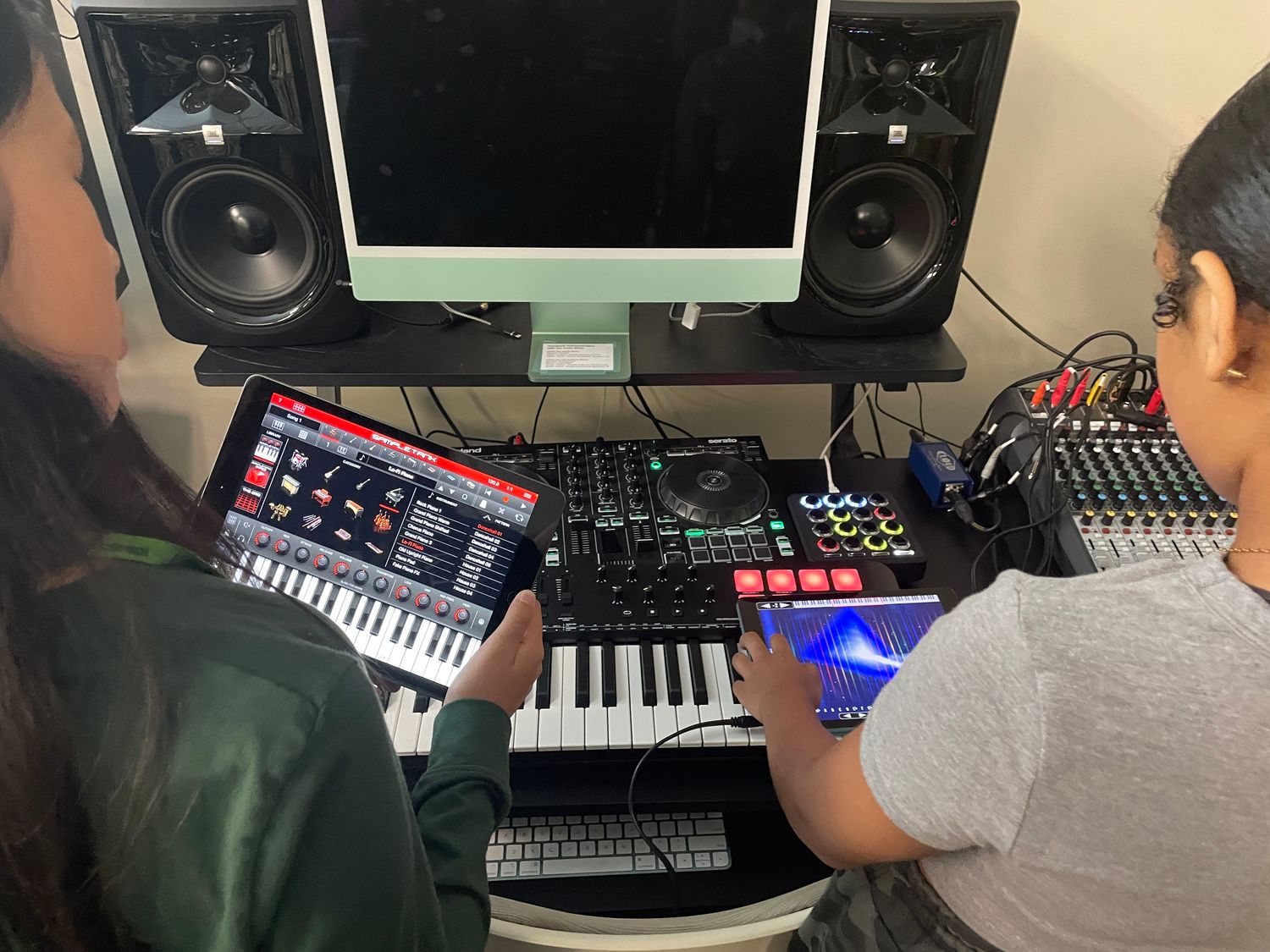Home>Production & Technology>Digital>Why Do Adults Find Digital Piracy Of Music So Attractive?


Digital
Why Do Adults Find Digital Piracy Of Music So Attractive?
Published: March 9, 2024
Discover the allure of digital music piracy among adults and the factors that make it so appealing in today's digital age. Explore the reasons behind the attraction to digital piracy.
(Many of the links in this article redirect to a specific reviewed product. Your purchase of these products through affiliate links helps to generate commission for AudioLover.com, at no extra cost. Learn more)
Table of Contents
Introduction
Digital piracy of music has become a prevalent issue in today's digital age. The ease of accessing and sharing music online has led to a surge in unauthorized distribution and consumption of copyrighted material. This phenomenon has raised questions about the motivations behind adults engaging in digital piracy, despite the potential legal and ethical ramifications. Understanding the factors that drive this behavior is crucial in addressing the challenges posed by digital piracy and finding effective solutions.
The allure of digital piracy among adults is a complex and multifaceted issue that warrants a closer examination. By delving into the underlying reasons behind this behavior, we can gain valuable insights into the dynamics of the digital music landscape and the evolving attitudes towards intellectual property rights. In the following sections, we will explore the various factors that contribute to the attractiveness of digital piracy among adults, shedding light on the convenience, cost, lack of consequences, and social acceptance that influence their decision-making processes. Through this exploration, we aim to foster a deeper understanding of the complexities surrounding digital piracy and its impact on the music industry and society as a whole.
Convenience and Accessibility
The widespread availability of digital music through online platforms and file-sharing networks has significantly contributed to the appeal of digital piracy among adults. The convenience and accessibility offered by these channels have reshaped the way individuals consume music, presenting a tempting alternative to traditional purchasing methods.
One of the primary drivers of digital piracy is the unparalleled convenience it offers. With just a few clicks, individuals can access a vast library of music without the constraints of physical media or geographical limitations. This instantaneous access to a diverse range of musical content aligns with the modern consumer's desire for immediate gratification. Moreover, the ability to download or stream music on various devices further amplifies the appeal of digital piracy, as it seamlessly integrates into individuals' daily routines and lifestyles.
Furthermore, the accessibility of pirated music transcends economic barriers, making it an attractive option for individuals who may not have the financial means to purchase music through legitimate channels. This accessibility fosters a sense of inclusivity, allowing individuals from diverse socioeconomic backgrounds to partake in the digital music landscape without financial constraints. As a result, digital piracy becomes a means of democratizing access to music, albeit through unauthorized means.
The proliferation of digital piracy platforms and technologies has also normalized the act of obtaining music through illicit channels. The seamless integration of piracy into mainstream online culture has desensitized many individuals to the ethical and legal implications of their actions. This normalization, coupled with the perception of anonymity and impunity in the digital realm, further fuels the appeal of digital piracy among adults.
In essence, the convenience and accessibility of digital piracy have reshaped the music consumption habits of adults, offering a compelling alternative to traditional purchasing methods. The allure of immediate access to a vast array of music, coupled with the perceived inclusivity and normalization of piracy, creates a potent cocktail of incentives that entices adults to engage in digital piracy despite the potential consequences.
The convenience and accessibility of digital piracy have reshaped the music consumption habits of adults, offering a compelling alternative to traditional purchasing methods. The allure of immediate access to a vast array of music, coupled with the perceived inclusivity and normalization of piracy, creates a potent cocktail of incentives that entices adults to engage in digital piracy despite the potential consequences.
Cost
The factor of cost plays a pivotal role in driving adults towards digital piracy of music. In a world where economic considerations significantly influence consumer behavior, the allure of obtaining music for free or at a fraction of the cost of legitimate purchases is undeniably appealing. The traditional model of purchasing music through physical albums or digital downloads often entails a financial commitment that may be perceived as prohibitive by many adults. The prospect of acquiring music without incurring any expenses presents a compelling value proposition that resonates with individuals seeking to fulfill their musical preferences without straining their finances.
Digital piracy offers a cost-effective alternative to purchasing music through authorized channels. The availability of pirated music at no monetary cost or at significantly reduced prices compared to legitimate platforms creates a stark contrast that entices adults to opt for unauthorized sources. This cost disparity is particularly attractive to individuals who are financially constrained or those who prioritize frugality in their consumption habits. The appeal of accessing an extensive catalog of music without the burden of financial expenditure is a driving force behind the widespread engagement in digital piracy among adults.
Moreover, the perception of overpriced music on legitimate platforms further amplifies the attractiveness of digital piracy. Adults may perceive the pricing of music on authorized platforms as unjustifiably high, especially when compared to the perceived value of the product. This perception is compounded by the availability of pirated music that offers the same content at no cost, creating a stark contrast that tilts the scales in favor of digital piracy.
Additionally, the evolving landscape of music consumption, characterized by the rise of subscription-based streaming services, has introduced new considerations related to cost. While these services offer convenient access to vast music libraries, the recurring subscription fees may deter cost-conscious adults from embracing these platforms. In contrast, digital piracy presents an alluring proposition by providing access to music without the financial commitment associated with subscription-based models.
In essence, the factor of cost significantly influences adults' decisions to engage in digital piracy of music. The allure of obtaining music at little to no cost, coupled with perceptions of overpriced legitimate platforms, creates a compelling incentive for adults to opt for unauthorized sources, despite the ethical and legal implications. This dynamic underscores the complex interplay between economic considerations and the attractiveness of digital piracy in the contemporary music landscape.
Lack of Consequences
The perceived lack of consequences associated with digital piracy represents a significant factor that contributes to its attractiveness among adults. In the digital realm, the anonymity and perceived impunity surrounding unauthorized distribution and consumption of music create a sense of detachment from the potential legal and ethical repercussions. This perceived lack of consequences serves as a powerful incentive that emboldens adults to engage in digital piracy without apprehension.
One of the primary drivers of the perceived lack of consequences is the inherent anonymity afforded by online platforms and file-sharing networks. Individuals engaging in digital piracy often operate under the guise of pseudonyms or anonymous profiles, shielding their identities from potential scrutiny. This anonymity fosters a sense of detachment from accountability, as individuals feel insulated from the repercussions of their actions. The absence of face-to-face interactions further contributes to this perception, as individuals may not directly witness the impact of their actions on artists, creators, and the broader music industry.
Moreover, the perceived complexity and opacity of legal enforcement surrounding digital piracy further reinforce the notion of a lack of consequences. Many adults may harbor the belief that the legal framework governing intellectual property rights and digital piracy is convoluted and difficult to enforce. This perception creates a sense of impunity, as individuals may perceive the likelihood of facing legal repercussions as remote or inconsequential.
Furthermore, the prevalence of digital piracy across global online communities contributes to the normalization of this behavior, further reinforcing the perceived lack of consequences. The widespread engagement in digital piracy creates a collective sense of acceptance and desensitization, leading individuals to perceive their actions as inconsequential within the broader context of online culture.
The absence of immediate and tangible consequences further diminishes the perceived risks associated with digital piracy. Unlike physical theft or infringement, the digital nature of piracy often obscures the direct impact on creators and rights holders, creating a sense of detachment from the ethical implications of unauthorized consumption.
In essence, the perceived lack of consequences surrounding digital piracy creates a compelling allure for adults, emboldening them to engage in unauthorized distribution and consumption of music. The anonymity, perceived complexity of legal enforcement, normalization of piracy, and absence of immediate repercussions collectively contribute to the attractiveness of digital piracy, despite the potential ethical and legal ramifications.
Social Acceptance
The concept of social acceptance plays a pivotal role in shaping the attractiveness of digital piracy among adults. In the contemporary digital landscape, the normalization and tacit approval of unauthorized distribution and consumption of music within online communities contribute to the allure of digital piracy. The prevailing attitudes and behaviors exhibited by peers and online networks significantly influence the decision-making processes of adults, fostering a sense of acceptance and validation for engaging in digital piracy.
One of the key drivers of social acceptance is the normalization of digital piracy within online communities and social circles. The pervasive presence of pirated music across various digital platforms and file-sharing networks has desensitized many individuals to the ethical and legal implications of their actions. The widespread engagement in digital piracy creates a sense of communal acceptance, where individuals perceive their behavior as a societal norm rather than a deviant or illicit activity. This normalization fosters a collective mindset that diminishes the stigma associated with digital piracy, thereby reinforcing its social acceptance among adults.
Moreover, the influence of peer behavior and attitudes towards digital piracy further amplifies its social acceptance. Within social circles and online communities, individuals may encounter peers who openly engage in digital piracy without facing tangible repercussions. This observation of peer behavior creates a social validation for digital piracy, as individuals perceive their actions as aligned with the prevailing norms and practices within their social spheres. The absence of social censure or disapproval further reinforces the perception of digital piracy as an acceptable and commonplace behavior, thereby contributing to its attractiveness among adults.
Additionally, the portrayal of digital piracy in popular culture and media further shapes its social acceptance. The depiction of digital piracy in movies, television shows, and online content often romanticizes or normalizes the act, presenting it as a rebellious or subversive behavior rather than an ethical transgression. This portrayal contributes to the cultivation of a social narrative that downplays the severity of digital piracy, fostering a sense of acceptance and even admiration for individuals who engage in unauthorized distribution and consumption of music.
In essence, the social acceptance of digital piracy within online communities, peer circles, and popular culture creates a compelling allure for adults, influencing their perceptions and behaviors towards unauthorized distribution and consumption of music. The normalization, peer influence, and media portrayal collectively contribute to the social acceptance of digital piracy, shaping its attractiveness and prevalence in the contemporary digital music landscape.
Conclusion
In conclusion, the allure of digital piracy among adults is a multifaceted phenomenon shaped by the interplay of convenience, cost, lack of consequences, and social acceptance. The widespread availability and accessibility of pirated music, coupled with the allure of immediate and cost-effective access, have reshaped the music consumption habits of adults, presenting a compelling alternative to traditional purchasing methods. The factor of cost, driven by the disparity between legitimate pricing and the availability of free or low-cost pirated music, significantly influences adults' decisions to engage in digital piracy.
Furthermore, the perceived lack of consequences surrounding digital piracy creates a powerful incentive that emboldens adults to partake in unauthorized distribution and consumption of music. The anonymity, perceived complexity of legal enforcement, and normalization of piracy collectively contribute to the attractiveness of digital piracy, despite the potential ethical and legal ramifications. Additionally, the concept of social acceptance, shaped by the normalization of piracy within online communities, peer influence, and media portrayal, further reinforces the allure of digital piracy among adults.
Understanding the underlying motivations and drivers of digital piracy among adults is crucial in addressing the challenges posed by unauthorized distribution and consumption of music. By delving into the complexities of this issue, we can gain valuable insights into the evolving attitudes towards intellectual property rights and the impact of digital piracy on the music industry and society as a whole. It is imperative to recognize the nuanced interplay of convenience, cost, lack of consequences, and social acceptance in shaping the attractiveness of digital piracy, as this understanding forms the foundation for developing effective strategies to mitigate its prevalence.
As the digital landscape continues to evolve, it is essential to foster a culture of respect for intellectual property rights and ethical consumption of music. By promoting awareness, education, and ethical alternatives, we can work towards cultivating a digital environment where the value of creative content is upheld, and the rights of artists and creators are respected. Through collaborative efforts and a nuanced understanding of the factors driving digital piracy, we can strive towards a more sustainable and ethical digital music ecosystem that benefits creators, consumers, and the broader society.











